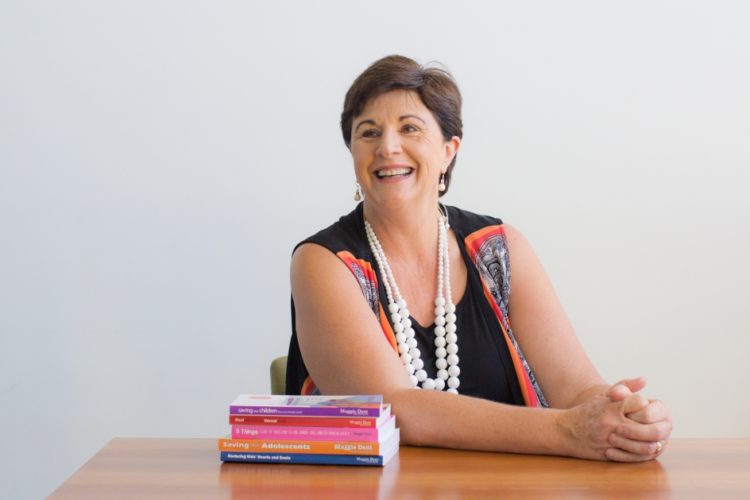In Maggie’s words …
What inspires me? I get inspired by kindness – wherever I see it, hear about it or sense it, it just makes my heart expand and I cry tears of pure joy. I feel blessed to have been gifted my four sons … so I am also always deeply grateful.
Best advice: Well, I have two pieces of advice that I have come to live by. Don’t just believe in miracles — expect them! Secondly, never put anything off – do it now ‘just in case’. In my death and dying work I have met so many people who thought they had so much time – to play more, to have great holidays to work on a dream …
Maggie Dent has her audience in raptures as she strides across the stage, recounting hilarious tales of parenthood and sharing the practical, no-nonsense parenting advice for which she has become so revered. Though she loathes the title ‘parenting expert’, Maggie has captured the hearts of parents and teachers across the nation for her focus on building resilient kids – kids who spend their time outdoors, who get dirty, who have been given the chance to fall, fail, and recover, and therefore build the confidence that comes from learning for themselves.
Maggie’s wit and talent as a speaker, educator and author make her appear a master of confidence. But she hasn’t always been this way. For Maggie battled a self-esteem so low that she once attempted to take her own life. How did she rise from despair to eventually lead a movement that is guiding the nation’s teachers and parents?
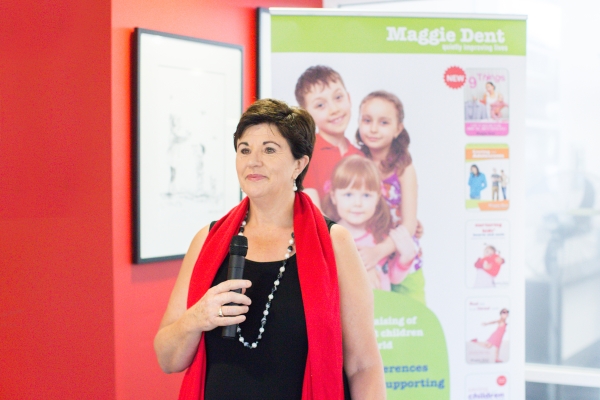
An outdoors kid
Growing up on a farm in country Western Australia, Maggie spent her time outdoors, roaming the open spaces, or tagging alongside her beloved father, enchanted by the stories he shared and influenced by his strong sense of community-mindedness, equality and social justice.
She developed her own sense of justice early. She remembers standing up to her teacher as a seven year old, her fists scrunched in anger as she berated the teacher for shouting at a fellow student and making her cry. Maggie spent the rest of the class sitting under the teacher’s desk as punishment.
She hung out with the Aboriginal kids whose parents worked on her family farm. She argued with her mother. She played with her five siblings. She did farm jobs. She helped her dad with agricultural science – thinking nothing of helping with tasks like measuring the scrotums of rams.
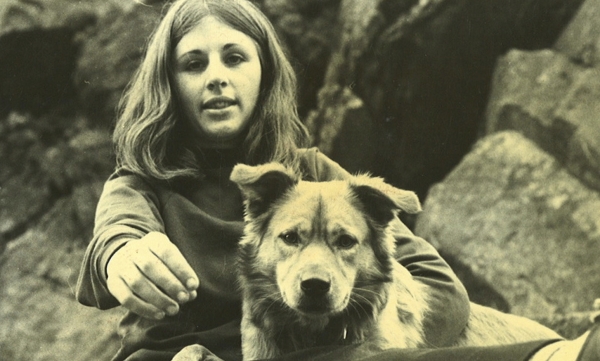
Self-esteem falters
Despite this robust childhood, by the time Maggie reached her teenage years she felt her self-esteem falter. Her bum was too big. She wasn’t into partying. She’d prefer to stay at home than socialise.
She consoled herself that at least she was good at school. She was smart, she earned good grades. “School was my mask that I was ok,” Maggie says. She relied so heavily on this mask that, when she failed a politics essay at university, she unravelled. “It was like something shattered in my mind,” Maggie says. “I had pegged my hat on this thing that I was going to be clever and when that mask cracked I thought ‘oh my god I have nothing … there’s no point living’,” Maggie says.
Devastated at the fail and what she made that mean for her self-worth, an 18-year-old Maggie took a bottle of pills and downed pill after pill in a suicide attempt. But one of the pills cracked in her mouth and the foul taste caused her to vomit. “I remember laying there in the foetal position, in this really dark, low place, sobbing, snot everywhere, completely alone and all of a sudden this light shone into the window onto me and I felt that happened for a purpose,” she says. “I sat up and thought ‘well I’m not supposed to die’.”
“It was like something shattered in my mind.”
Spark of potential
The experience made Maggie realise the fragility of the teenage mind – just one failure and a life was at risk. It made her determined to do what she could to prevent others from making the mistake that had so nearly cost her life. So Maggie became a teacher.
“Teaching was so much fun,” she recalls of her high school English teaching. “I couldn’t believe I was having so much fun. I just got my students, I could read their masks, I could make learning fascinating and fun, and I really valued each one of them.”
As a teacher, Maggie came to realise there’s a “spark” inside everyone that needs nurturing. “It’s a bit like the human spirit – it’s this pulsing place within us that I could see in kids,” she says. “Inside every single child there’s this pulsing place of potential that I think we’re buggering up.”
Maggie sees the results of this spark being quashed every day, particularly in the women she encounters. “I’m often nudging women saying ‘is there something in you, something that was shut down in a box as a kid or in your early teens and you need to bring out because you’re going to be restless until you have a look at it?’. I still think that’s some of the best work that I do.”
“Inside every single child there’s this pulsing place of potential.”
Deep personal inquiry
A few years into teaching, Maggie started producing her own little sparks of human potential – four boys of her own. While revered as a parenting ‘expert’ today, Maggie scoffs at the notion. “Parenting is the hardest job on the planet,” she says. “And a house without conflict does not exist.”
One day she found herself overwhelmed and fed up, with her hand raised to smack her two-year-old son. She stopped and realised she wasn’t being the parent she wanted to be. She questioned where the anger had come from. And she went on to launch a deep and long-lasting personal inquiry into her own childhood and why she’d become the person she had become. This inquiry would help Maggie realise she’d made up ‘stories’ about herself that were not real. She realised she had the capacity to design her character and her life in the way she’d like – something she encouraged other women to do by going on to lead women’s retreats.
“Parenting is the hardest job on the planet.”
Giving up the meaningless
When Maggie’s third boy was 14 months old, she had a near-death experience which would shape the way she would go on to parent. It was Christmas day and her three boys were home with chickenpox, or ‘chicken pops’ as they called it, and Maggie was watering the lawn when she felt blood trickling down her legs.
As the blood poured out of her, Maggie called a friend who realised something was drastically wrong. At hospital they thought she’d suffered a miscarriage. But the bleeding wouldn’t stop. Maggie began to vomit. Her blood pressure dived. “I remember being so close to death – I saw a golden tunnel and everything,” Maggie recalls. “I remember in that moment thinking I can’t do this anymore and giving up but then remembering the three boys. If you have a near-death experience your experience as a mother is transformed forever.”
After recovering from what turned out to be a hormonal dysfunction that mimicked a miscarriage, Maggie began to regard the experience as a blessing. “I was so grateful to be alive,” she says. “I started to drop the little meaningless stuff. There were days I’d leave the washing and go to the beach or the park. I got used to the noise, I got used to the chaos. I let the kids put their own clothes on – I didn’t care if they were dressed badly or I hadn’t wiped all the mess of their faces. Who cares if they’ve got Vegemite on them? I encouraged their own thinking. I started letting them do more for themselves. And I discovered that they were wiser than I thought. They were more capable than I realised.”
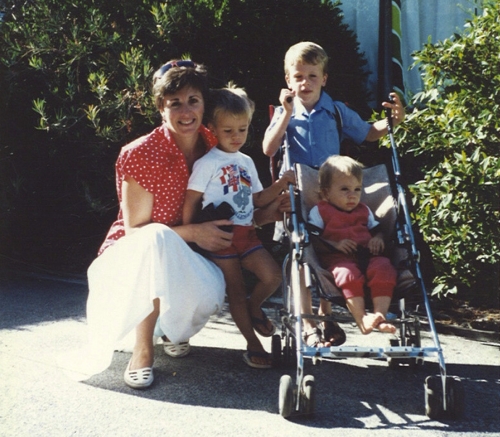
Power of being real
No longer teaching fulltime while she brought up her boys, Maggie sought other ways to fill her time and fulfil her search for a sense of purpose. She came across a brochure calling for volunteers at a palliative care hospice. “I just thought ‘who the hell would do this’ and threw the letter in the bin,” she says. “But about four nights later I woke up in the night absolutely crystal clear and thought ‘you need to do this’.”
She signed up, did the training and started the volunteer role as a bereavement coordinator. While she was uncomfortable with the physical and medical care, she came to realise the role she could play by simply being there, being honest, accepting suffering, and avoiding the temptation for false cheeriness. “I had a knack for making people comfortable, but without the bullshit, not sympathy but empathy,” she says. “I could sit with people quite comfortably in complete silence.”
The role also taught her the value of honesty and of people’s remarkable capacity to withstand suffering. She remembers a 10-year-old boy with a brain tumour who was nearing his final days – a boy the same age as her oldest son – who helped her learn the power of being real. “He was the most beautiful, bright, shining, caring boy … and every day I’d think ‘shit I’m having to put a fake face on’,” she says. “Then one day I just said to him ‘you know I’m actually sad that you’re so sick. I don’t want to pretend that I’m happy. I can still laugh with you but I just want you to know that I am sad’ and he turned to me and said ‘thanks for being honest’. He really appreciated that. That’s where I started my resilience understanding. I realised we don’t need to resist the suffering, we have the ability to cope with the big shit.”
“… we don’t need to resist the suffering, we have the ability to cope with the big shit.”
Dealing with the big stuff
Maggie cemented the realisation that suffering is an important part of the rich tapestry of human life in her work as a celebrant for funerals. Again she saw the value in allowing people to feel their pain, in being real, in holding a safe space for people who are suffering.
And the skills she learned as a celebrant held her in good stead when she returned to teaching, where kids sought her out when they wanted to “talk about the big stuff”. “I realised anyone can teach how to write paragraphs but not everyone can help a young teen who wants to die,” she says. So Maggie embarked on a post graduate diploma in counselling and ended up leaving teaching to counsel kids fulltime.
She saw the value in allowing people to feel their pain, in being real.
A messenger
As a counsellor Maggie started to notice a new trend in children – stress. She held a seminar for parents to help them to guide their stressed out kids. The talk was a hit and almost accidently Maggie fell into a role that would see her go onto deliver parenting and teaching seminars across the nation and author six parenting books.
Maggie does not consider herself an expert, but rather a messenger. She loves studying the research on child development and disseminating it in a way others can understand. She says one of her biggest jobs is challenging parents to ask “who is the child who has turned up and ask how can you help them be the best expression of who they are, rather than who you want them to be?”
She warns of the modern-day trend to ‘over parent’. “Kids do need to experience life,” she says. “We are over-parenting, we’re doing our kids homework for them, we’re dropping them off so they’re on time. But our kids are more capable than we give them credit for.”
But she believes perhaps her greatest role is helping parents realise they are normal.
“I just normalise what they thought was something terrible in their house,” she says. “In nearly every house it’s chaos getting ready for school, there’s not something wrong with you, you’re not failing as a parent, it’s just what childhood can be like. I think that’s an important message for any parent to hear – we’re all doing the best we can, everyone’s doing it, so why not just sit on the couch and have a cup of tea and lighten up a bit and say ‘right this is parenthood’.”
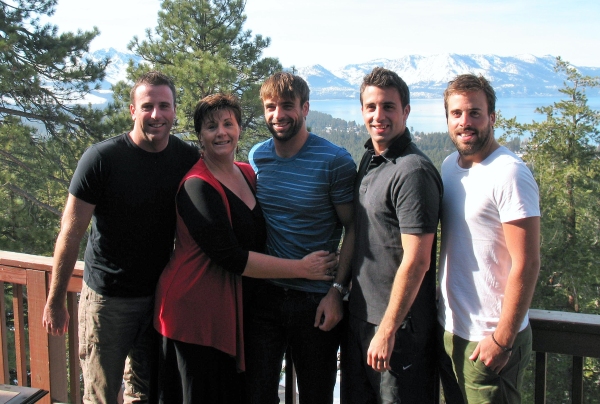
“Our kids are more capable than we give them credit for.”
Get involved …
To find out more about Maggie and order her books visit her website www.maggiedent.com
Maggie is also gifting women with a free relaxation audio track which you can access here: https://soundcloud.com/maggiedentauthor/maggies-moon-meditation-for-mums

